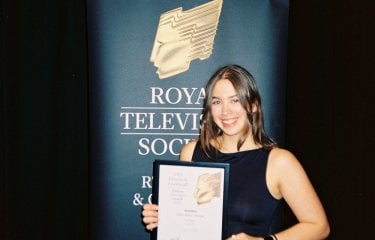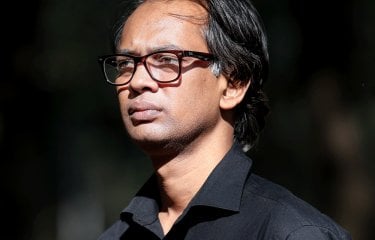The difference between studying Film and Television
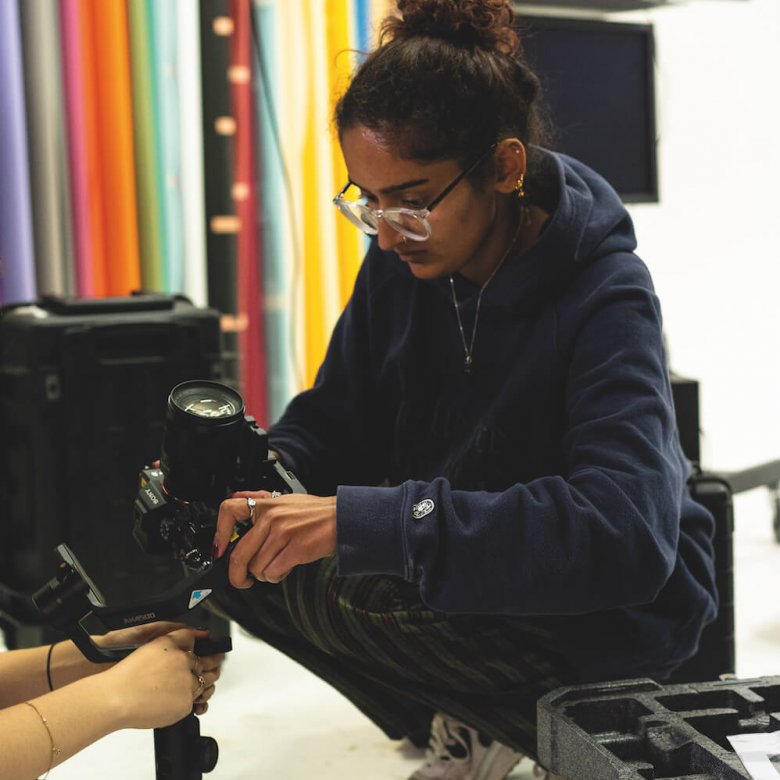
In a recent report commissioned by ScreenSkills, film and high-end television production spend in the UK is forecast to exceed £7.66 billion by 2025, and to facilitate this growth, the industry will need to recruit almost 21,000 additional crew to meet demand. With an increased need for training and skills development across the production sector, there’s never been a better time to study a degree in Television or Film.
If you’re interested in studying Television or Film at University but are unsure which degree to choose, we caught up with Faye, Course Leader of Television & Film Production BA(Hons), and Laura Canning, Course Leader of Film BA(Hons) to explain the differences between these courses at Falmouth.
What are the main differences between studying Film and Television & Film Production?
Both Television & Film Production BA(Hons) and Film BA(Hons) at Falmouth have a focus on drama and documentary-making, with each degree requiring a high level of critical thinking and research skills, as well as a passion for production. Of the two degrees, Television & Film Production BA(Hons) tends to be more hands-on and practical from the start, suiting students who learn through doing.
The Film BA(Hons) degree focuses on the kinds of short films and features exhibited in cinema and galleries, and suits those who have a desire to develop their voice through exploring filmmaking history and practice from around the world while taking the time to analyse and contextualise their making.
Just like the television industry, the Television & Film Production BA(Hons) course moves at a quick pace with a faster turnaround of projects and working to both original and set commissions. Production crews for Television & Film Production projects tend to be slightly bigger, where students have a greater opportunity to try more niche roles such as first assistant director, script supervisor or camera assistant alongside writing, producing, directing, cinematography, sound, editing and more. The Television & Film Production course puts creative expression and the development of story (or script) at the centre of the student experience which results in strong, innovative and cinematic outputs.
Falmouth’s Film degree covers a range of creative and formal approaches, including narrative and experimental short filmmaking and documentary, and allows students to flex their creative and organisational strengths by exploring roles in producing, directing, cinematography, post-production editing, grade and sound design, and short or feature-length screenwriting. Students are encouraged to reflect on their own practice within the tradition of film by critically examining film history, culture, representation, genre and industrial contexts while making films.
The Television & Film Production BA(Hons) degree also offers the opportunity to go beyond drama and documentary making, with students having the option to explore branded content, commercials, event streaming, music video production, multi-camera and more.
While creating a range of productions during their first year, both Film and Television & Film Production students can choose to try different craft and technical roles before specialising in a subsequent year of their degree.
When choosing whether to study a degree in Television & Film Production or Film, it’s not so much about which industry you want to work in but more about how you like to learn.
What kind of jobs could you do with a degree in Film or Television & Film Production?
Both of our Television & Film Production and Film degrees equip students with the skills to be able to work across both industries when they graduate. Most graduates will typically work in television initially, as this tends to be the industry with the most entry level employment opportunities globally. Whether you decide to study either course, you could pursue a range of careers, including working as a producer, director, cinematographer, editor, sound recordist or mixer, production or location manager, casting director or screenwriter.
Television graduates have gone on to work on both Hollywood feature films, such as No Time to Die (2021), and high end TV dramas including House of the Dragon. Similarly, Film graduates have carved out careers in filmmaking and television production, working on titles such as His Dark Materials and Sex Education.
When choosing whether to study a degree in Television & Film Production or Film, it’s not so much about which industry you want to work in but more about how you like to learn.
How do the Television & Film Production and Film courses prepare students for industry?
Both courses are taught by incredible lecturers and technicians within the School of Film & Television. The majority of staff have direct industry experience and continue to work in the field to maintain connections and industry practice which they incorporate into their teaching.
Students learn in our professional television and film facilities, which include production studios, editing suites, a dubbing theatre with 5.1 surround sound, animation studios, green screen volumes, and a 129-seat cinema. By mirroring industry practices, our students gain a thorough understanding of how a professional crew operates through the development, production, post-production and positioning of their work. And we go beyond this and even look to improve on industry practice, particularly where it comes to inclusivity and representation. Upon graduation, Television & Film Production and Film students can walk on set with a clear understanding of the etiquette, the key roles and the process of making.
Across the School, Television and Film students also benefit from a range of guest speakers who deliver talks and masterclasses across different specialisms. Through Falmouth’s Sound/Image Cinema Lab, students have previously worked on short films and feature length titles including the BAFTA-award winning feature BAIT (2019), The Severed Sun (2024), Long Way Back (2022) and Enys Men (2022), giving them direct set experience, industry credits and an incredible start in the industry.
Whether you choose a degree in Television & Film Production or Film, remember that the skills taught across the two courses will give you the knowledge and experience to work in either industry.
Explore our Television, Film & Animation courses
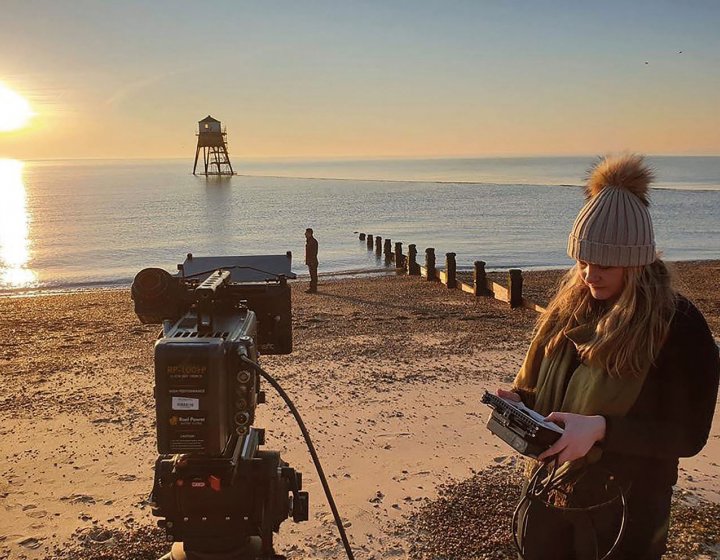
Television & Film Production BA(Hons)
Discover how to create everything from high-end dramas with full scale crews through to fast moving ...
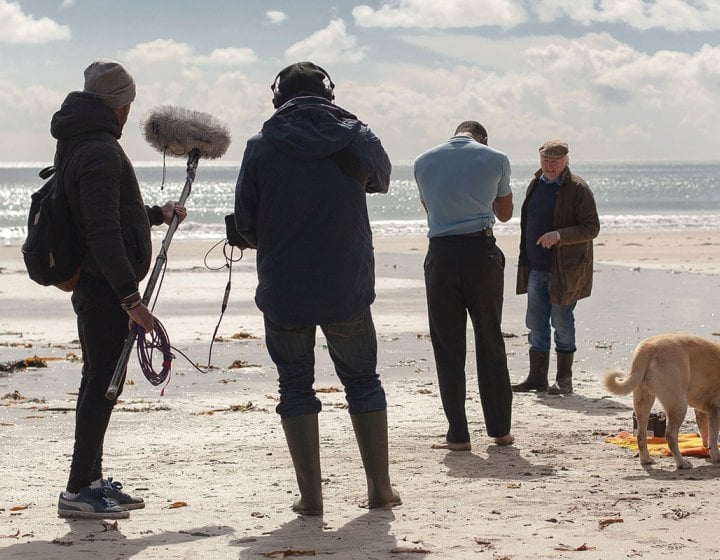
Film BA(Hons)
Develop your filmmaking abilities, honing your practice and deepening your understanding of cinema. ...
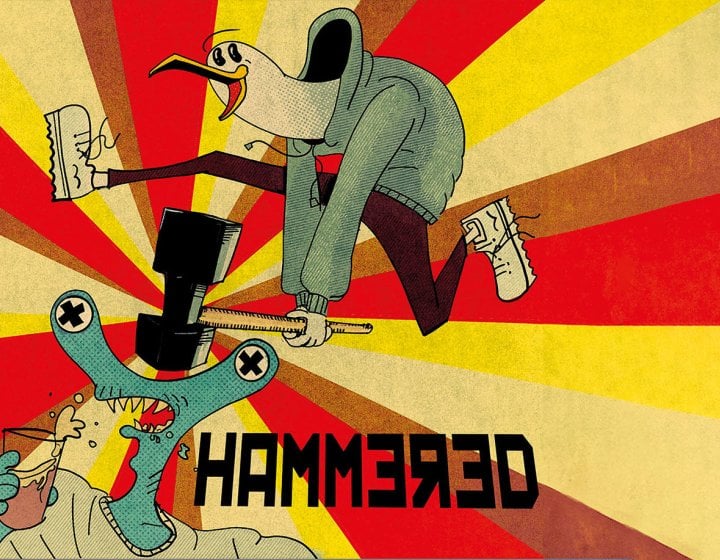
Animation BA(Hons)
Bring your ideas to life through the world of animation. We’ll support you in developing original,...
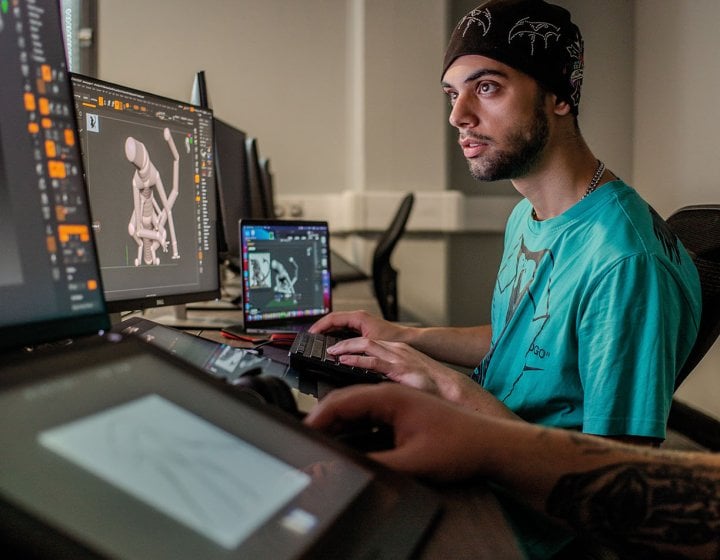
Post Production & Visual Effects BA(Hons)
Take your first steps in building a career on this industry-focused course, which covers all aspects...
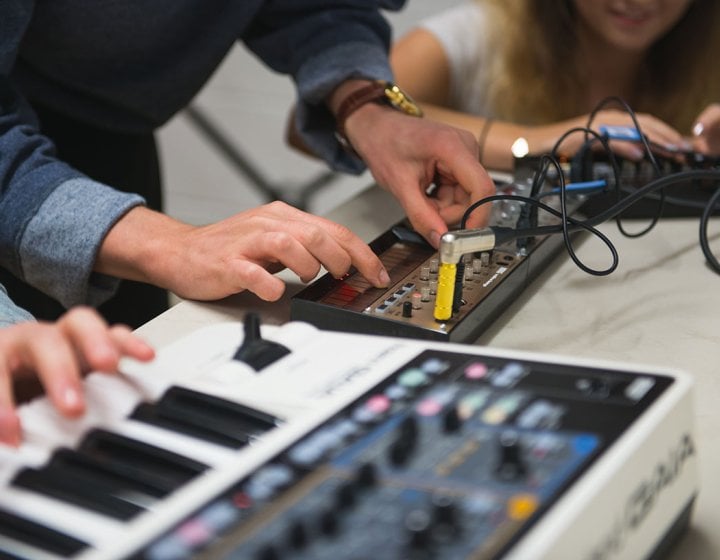
Sound Design BA(Hons)
Explore the boundaries of sound and its potential to transport an audience in different contexts, fr...

